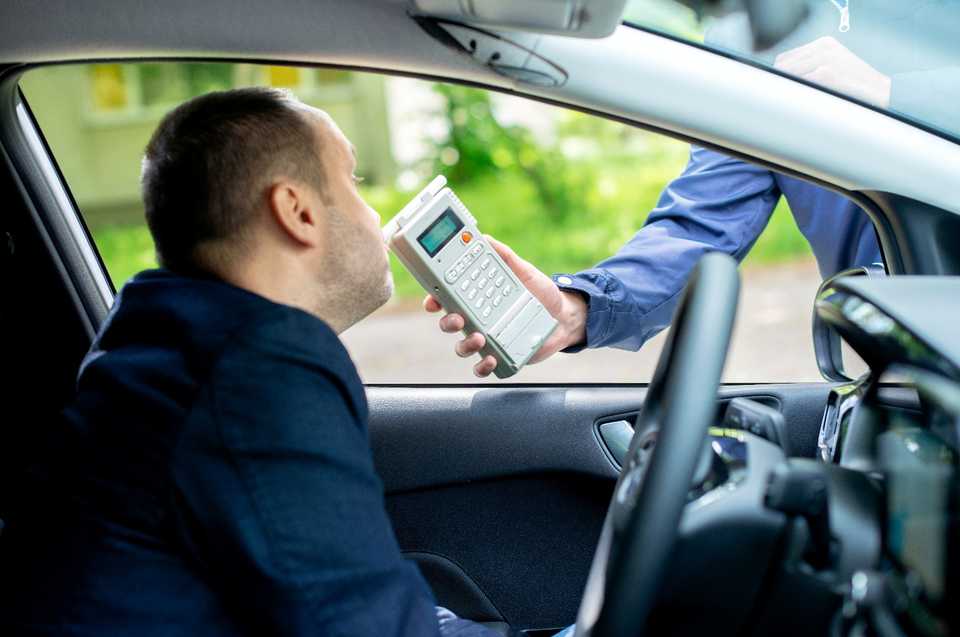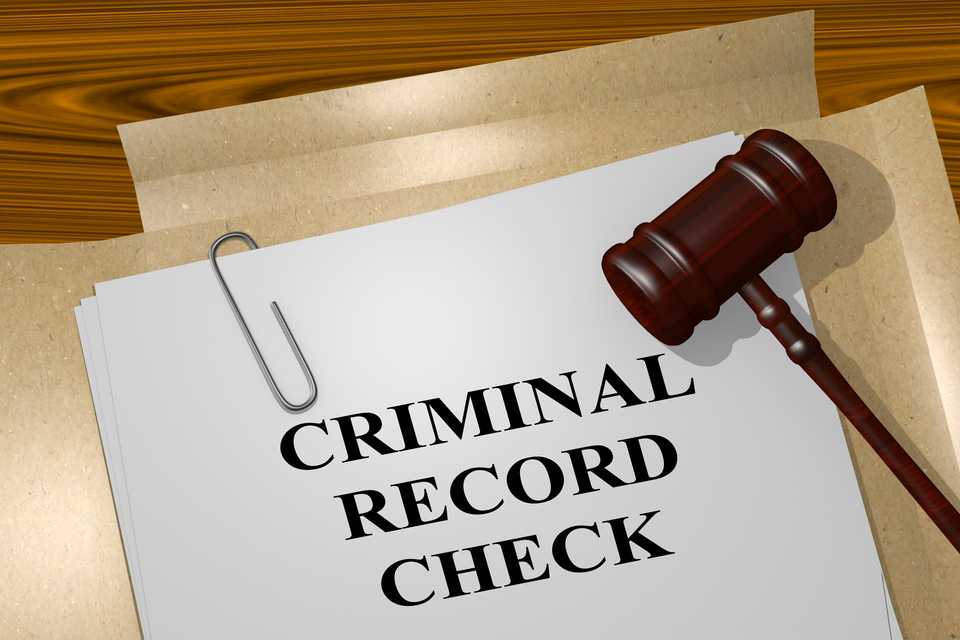Driving under the influence, or DUI, is not just a traffic offence. It is considered a criminal act in Ontario, with serious consequences that can follow you for years.
Whether you had just a few drinks after work, taken medication that affected your alertness, or consumed recreational drugs, impaired driving laws in Ontario aim to keep roads safe and violators accountable.
| A DUI conviction in Ontario can lead to the suspension of your driver’s licence, a criminal record and even imprisonment. The specific consequences will be harsher for a second offence, or in the presence of aggravating circumstances. |
|---|

This comprehensive guide will help you understand what impaired driving means under Ontario law, the legal limits for alcohol and drugs, the penalties for the different offences, and the consequences of facing DUI charges.
Let’s break down exactly what you need to know.
What Is Considered Impaired Driving in Ontario?
In Ontario and Canada in general, impaired driving means operating a vehicle at a time when your ability to do so is compromised by alcohol, drugs, or a combination of both.
This includes not only illegal substances but also prescription and over-the-counter medications that affect coordination, reaction time, or judgment.
Under the Criminal Code of Canada, impaired driving is a criminal offense, not just a traffic violation. Ontario enforces these laws strictly, and “impairment” doesn’t always mean you’re obviously drunk or high. In fact, many drivers are shocked to find themselves charged even though they thought they were “okay to drive.”

Impairment doesn’t just mean you’re stumbling or slurring your words. You can be legally impaired even if you feel fine, and the determination depends on your blood alcohol concentration (BAC) or drug levels in your system.
Mode of transportation covered by DUI:
- Cars, SUVs, trucks
- Motorcycles
- Boats and jet skis
- E-bikes and motorized scooters
- Off-road vehicles (ATVs, snowmobiles, etc.)
- Farm equipment and construction vehicles (if used on public roads)
Driving laws apply to any motorized vehicle in motion.
Types of Impaired Driving
- Alcohol Impairment
- The legal limit for fully licensed drivers is 0.08% blood alcohol concentration (BAC).
- However, a “warn range” begins at 0.05% BAC, which still carries consequences.
- Novice drivers and commercial drivers must have zero alcohol in their system.
- Drug Impairment
- This includes impairment due to cannabis, prescription medications, and illicit drugs.
- Even if a drug is prescribed, if it impairs your ability to drive, you can still be charged.
- Common impairing substances: THC, opioids, benzodiazepines, sleep aids, allergy medications, and stimulants.
- Combined Alcohol and Drug Impairment
- Combining alcohol and drugs significantly increases your risk of impairment and is treated more harshly by law.
- Refusing a Test
- Refusing to comply with a lawful demand for a breath, blood, or oral fluid test is considered equivalent to impaired driving under the law.
- This refusal carries penalties under the Criminal Code.
How Impairment Is Determined
Police officers are trained to detect signs of impairment based on behaviour, physical symptoms, and roadside test results. They may use:
- Standardized Field Sobriety Tests (SFSTs): walk-and-turn, eye movement test
- Breathalyzer tests for alcohol
- Oral fluid screening devices to detect drugs like THC or cocaine
- Blood samples, when drug impairment is suspected or required by law
- Drug Recognition Experts (DREs) who perform in-depth assessments if impairment is suspected but not confirmed by roadside tests
You Can Be Charged Even Below the Legal Limit
It’s dangerous to think that staying just under 0.08% BAC will keep you safe from DUI charges. In Ontario:
Warn range (0.05% to 0.079%) still results in immediate licence suspensions, fines, and escalating penalties for repeat offences.
You can be criminally charged if the police believes your ability to operate a vehicle is impaired, even if your BAC is below 0.08%.
Cannabis and Road Safety: Ontario’s DUI Rules
Since cannabis legalization in Canada, Ontario has introduced zero-tolerance rules for certain drivers and set thresholds for THC.
However, unlike alcohol, impairment from THC doesn’t always correlate with THC levels in the blood, making enforcement more complicated.
To stay safe:
- Wait at least 6 hours after consuming cannabis before driving.
- Consider waiting a longer time before driving if you are new to cannabis, took edibles, or combined it with alcohol.
Legal Limits: How much is too much?
In Ontario, impaired driving charges aren’t just based on how you feel at the moment.
They are based on measurable legal limits for alcohol and drugs in your system. Even small amounts can trigger serious consequences, especially for novice and commercial drivers.

Here’s what you need to know about the thresholds that could lead to DUI charges.
Alcohol:
- Fully licensed drivers: Legal limit is under 0.08% BAC
- Warn range: Between 0.05% and 0.079% BAC can result in administrative penalties
- Novice drivers and commercial drivers: Must have a 0.00% BAC
Cannabis:
- 2 nanograms (ng) per ml of blood = lower-level offence
- 5 ng or more = criminal offence
Combined alcohol and cannabis:
- 50 mg of alcohol per 100 ml of blood + 2.5 ng of THC or more = criminal offence
Other drugs (e.g., cocaine, LSD, meth):
- Any detectable amount can lead to a charge.
Immediate Consequences: What Happens at the Scene?
If you're pulled over and suspected of impaired driving, the police can:
- Conduct roadside sobriety tests
- Use a breathalyzer or oral fluid drug screening device
- Demand a blood sample, especially for drugs
If you fail or refuse to comply with a demand, you can be charged, and in some cases, refusal carries the same penalties as failing the test.
Immediate administrative penalties can include:
- Licence suspension:
- 3 days for first “warn range” offense
- 90 days for a first-time criminal DUI charge
- Vehicle impoundment for 7 days
- Fines starting at $250 and increasing with repeat offenses
Refusing a Breath or Drug Test: Is It a Smart Move?
If you are wondering whether it is smart to refuse a breath test or a blood test, the answer is NO.

Refusing a lawful demand for a breath sample, blood test, or drug screening is a criminal offence, with the same or worse penalties as a DUI conviction.
Refusing a test carries:
- Minimum $2,000 fine
- Mandatory licence suspension
- Criminal record
In other words, you must cooperate with the police, and refusing to do so will not help your case.
What are the consequences of a DUI in Ontario?
If your case proceeds to criminal court, the consequences can be harsh.
First Offence DUI (Over 0.08 BAC or drug impairment):
- Minimum $1,000 fine
- Mandatory 1-year licence suspension
- Mandatory education/treatment program
- Ignition interlock device for at least 1 year
- Criminal record
Second Offence:
- Minimum 30 days in jail
- 3-year licence suspension
- Higher fines and longer interlock period
Third Offence:
- Minimum 120 days in jail
- Licence revocation
- May require a lifetime interlock device (if reinstated at all)
Aggravating factors like causing injury or death, having a passenger under 16, or driving while prohibited can lead to even harsher penalties, including life imprisonment for dangerous driving resulting in death.
Additional Administrative Penalties
Aside from the courts, the Ministry of Transportation of Ontario (MTO) imposes administrative consequences under the Highway Traffic Act and Ontario’s Zero Tolerance and Warn Range laws.
These sanctions include:
- Mandatory education/treatment programs: “Back on Track” is a common requirement.
- Licence reinstatement fees: Usually $281 or more.
- Ignition interlock program costs: Roughly $1,500 per year.
These costs are out-of-pocket and non-negotiable.
The Long-Term Effects of a DUI Conviction

A DUI doesn’t end once you pay the fine or serve a suspension. It can negatively impact your life for years to come. What are the long-term consequences of a DUI conviction?
1. Criminal Record
A DUI conviction stays on your record forever unless you obtain a record suspension (formerly pardon).
This can affect employment, housing applications, and other future opportunities.
- Insurance Premiums
- Your insurance can double or triple. Worse, your insurer may refuse coverage.
- You may be required to buy high-risk driver insurance coverage, which could cost thousands more per year.
3. Travel Restrictions
Some countries, including the U.S., may deny entry to travellers with DUI convictions. This can impact vacations, business trips, and family visits.
4*.* Employment Consequences
Future employment or career opportunities can be negatively affected, especially:
- Jobs that require driving, such as delivery, transport, or site work, may be off-limits.
- Professions like law, healthcare, and education may take disciplinary action.
Young, Novice, and Commercial Drivers: Zero Tolerance Rules
In Ontario, special rules apply to:
Novice Drivers (G1, G2, M1, M2)
- Must maintain a zero BAC and zero THC level
- Any amount can result in:
- Immediate 24-hour suspension
- $250–$450 penalties
- Licence cancellation
Commercial Drivers
- Also subject to zero alcohol and drug tolerance
- Violations can result in licence suspension and job loss
These rules highlight Ontario’s commitment to road safety concerning vulnerable groups and those with significant responsibilities.
DUI Causing Bodily Harm or Death: The Most Serious Offense

If impaired driving leads to an accident where someone is injured or killed, charges escalate quickly:
- Impaired Driving Causing Bodily Harm: Up to 14 years in prison
- Impaired Driving Causing Death: Up to life in prison
Courts often impose the harshest penalties available, including long-term driving prohibitions and permanent criminal records.
Victim impact statements and media coverage can also influence sentencing.
Do You Need a Lawyer to Fight DUI Charges?
A DUI is not just a minor traffic violation; criminal charges can result in imprisonment, a criminal record, and significant restrictions on your freedom and lifestyle.
To fight DUI charges, you need a reputable and experienced criminal lawyer to protect your rights, reduce the charges, defend you against the charges, or have the charges dropped.
A skilled DUI lawyer can:
- Review police procedure for errors (e.g., improper testing, rights violations)
- Challenge the legality of the stop
- Negotiate reduced charges
- Help you qualify for diversion programs (in some rare cases)
- Guide you through licence reinstatement, interlock program, and record suspension
Even if the evidence seems strong, an experienced lawyer may find flaws in the case that could lead to reduced or dropped charges.
Costs of a DUI in Ontario: It Adds Up Fast
A DUI is expensive, even for a first-time offender. Here’s an estimate of what you may need to pay:
| Item | Estimated Cost |
|---|---|
| Minimum Fine (Criminal) | $1,000 |
| Lawyer’s Fees | $2,000 - $10,000 |
| Licence Reinstatement | $281 |
| Back on Track Program | $634 |
| Interlock Program (1 year) | $1,500+ |
| Insurance Hikes | $4,000++ per annum |
| Total Cost | $10,000 - $25,000 |
This does not include lost income or wages.
The Cost of a DUI Lawyer in Ontario
Hiring a lawyer for an impaired driving charge is a significant investment, but it can have considerable impact on the outcome of your case.
Legal fees for DUI defense in Ontario can vary widely based on the complexity of your case, your location, and the experience of your lawyer. Here’s what you can expect to pay, and why hiring a DUI lawyer is worth the cost.

1. Typical Fee Ranges
Basic DUI case: First-time offence, no injuries, typically costs from $5,000 to $10,000.
More complex matters, especially those requiring expert witnesses, or if the case proceeds to trial, can range from $10,000 to $15,000, and may even exceed $15,000 if the case is particularly complicated.
In Toronto, lawyers’ fees often start at around $8,900, with average total expenses reaching up to $21,500 for first-time DUI convictions. This includes court fees, reinstatement, interlock, and education programs.
Basic defence fees for a one-day trial in Ontario average about $6,100.
2. Billing Models
Flat/block fees: Frequently seen in DUI cases. Lawyers offer a fixed price for representation through court resolution. Additional fees may apply if the case goes to trial.
Hourly billing: Typically $200–$500/hour, sometimes up to $750/hour, especially for senior lawyers in urban centers.
3. Factors Influencing the Cost of Legal Fees
- Experience and reputation of the lawyer
- Complexity of your case (bodily harm, advanced testing, Charter challenges)
- Location, particularly if based in major cities like Toronto
- Required resources such astoxicologists or specialists in accident reconstruction
- Length of proceedings and whether your case goes to trial
- Court-imposed fines (minimum $1,000)
- Enrollment in Ontario’s “Back on Track” program ($2,000)
- Ignition interlock system fees
- Licence reinstatement costs
- Insurance premiums that can increase by $2,000+ annually for 3–6 years
- Alternative transportation costs during the suspension period
The cost of legal fees seem like a lot but the potential benefits of avoiding higher fines, insurance hikes, licence suspension, and a criminal record makes hiring a DUI lawyer a very wise investment.
Can a DUI Be Removed from Your Record?
Yes, a DUI record can be removed but only after a waiting period of one year. You need to apply for a Record Suspension through the Parole Board of Canada.
To be eligible, you must meet the following criteria:
- A minimum 5-year wait period for summary convictions
- Proof of completed sentence and good conduct
- A completed application with processing fee of $50)
Until your request for a record suspension is granted, a DUI will appear in criminal background checks in your name.
Where to Find the Best DUI Lawyer in Ontario
Facing an impaired driving charge can be overwhelming, but finding the right lawyer can give you a real advantage in court.
The best DUI lawyers in Ontario combine experience, specialized knowledge, and a strong track record of defending clients in impaired driving cases.

With so many criminal lawyers in Ontario, how do you find the right one quickly?
Fortunately, we have many partners specializing in DUI cases across Ontario. No matter where you are, one of our partners can be your ally in defending yourself against DUI charges.
Fill out the short online form on this page to connect with the best DUI lawyers in:
- Ottawa
- Toronto
- Hamilton
- Richmond Hill
- Mississauga
- Brampton
- Markham
- Vaughan
- And all across Ontario.
Compare multiple DUI experts based on expected fees, defence strategy, track record, and reputation.
By speaking to our partners, you can learn more about their work and experience to see if they are the right fit for you.
